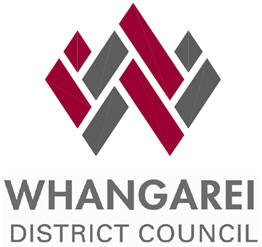 |
|
|
|
|
Welcome to another two weekly review of energy and environmental events and developments from both here in New Zealand and around the world. As always, we hope you find our collection of stories to be of interest in what continues to be a rapidly evolving area. Firstly, we would like to welcome Whangarei District and Wairoa District Councils as our latest subscribers to e-Bench™ This issue examines government and corporate attitudes to sustainability and how contrastingly almost perversely reverse they are. One group has been elected by the people to represent the people. The other is unelected. So which group is behaving more ethically and responsible? Read on and draw your own conclusions. Apologies in advance if we appear biased, because we are. Something that has been very much in the news this week is the US attempting to raise their debt ceiling. And why, according to Al Gore, it is the same problems that are being encountered as in the debate over the climate crisis. It really is a struggle between the vested interests of the old order who don’t want anything to change because they never had it so good and the 98 percent who are paying for the old order to have it so good. Can’t have winners without losers, especially how fabulously wealthy and powerful a select few have become through exploitation of the masses. Their view of the old order is maintained by playing a game called the ‘US Government and Big Business’ governed by their own set of rules. Which goes a little like this - buy and bribe politicians and judges to pass laws that allow them to pay little of no tax, get Corporations to have the same rights as people and therefore lobby in elections with almost limitless funds for their chosen candidate, control the media so that all the masses ever get to hear about is American Idol and reality shows. And if the majority gets too curious, then feed them lies and untruths (aka Fox News and Rupert Murdock) and then pass legislation (Net Neutrality Bill) to control the internet so they can’t find out for themselves. And if they are getting too problematic, lock them up (Patriot Act ostensibly passed for homeland security). And no, we are not making this stuff up. In stark contrast to their self-serving political theatre, is the attitude of US retailers and manufacturers where customers matter. If a customer doesn’t like you, they don’t buy your stuff. We look at how they are addressing sustainability and using it as an opportunity to drive efficiencies both within their own organisation and also through their supply chain. It would appear that the initiatives are now fast becoming mainstream as companies in different sectors are responding to their competitors or risk being left behind. Sustainability initiatives and goals are tending to fall into one of four broad categories, being 1) Operations, 2) Products and packaging, 3) Recycling and reuse and 4) Sustainable sourcing. The mix and weighting of these tend to depend on the nature of the industry sector. Overall though, the top aim is to reduce greenhouse gas emissions, with reductions in energy consumption providing the most effective means of realising this. As an example of sustainable initiatives, we look at ten leading US retail chains, including the world’s largest retailer ~ Walmart, the world’s largest retail drugstore ~ Walgreens and the largest retailer for the US Department of Defence ~ Army Air Force Exchange. There is hope after all and maybe the customer is right? It’s not as if these selfish and irresponsible attitudes are restricted to the US, with Canada and their tar sands also muscling in on the act. Brazil on the other hand is a contrast when it comes to consideration of the planet and humankind’s welfare. Oh, and if Canada might be successful in having their tar sand oil extracted and consumed, it will push the CO2 parts per million to around 600, a level not seen since the Miocene Era, which was about 25 million years ago. Game over for humankind. This lack of responsibility would appear to be more endemic and deeper set in our modern society than we might like to admit. Our next article looks at how Britain has turned into a giant rubbish bin and that those responsible for the mess largely at ease with their tireless efforts. All rights, with zero responsibility. Our next three articles examines what our future cities might look like and how they will need to be compact and high-density. High density increases effective transport systems and it increases the labour pool, which in turns tends to produce greater innovation and productivity. Sprawl contrastingly increases congestion, the costs of infrastructure and servicing a population based over a wide area. We round up this issue with the good news that our water crisis may be over, with the discovery of the largest mass of water in the universe – a gigantic, 12-billion-year cloud harbouring 140 trillion times more water than all of the Earth’s oceans combined. Only problem is that is 12-billion light years from Earth and that the Koch Brothers already have claims on it and when bottled will be called ‘Koch Quasar Water’. Smoking hot, we are marketing geniuses. Thanks for taking the time to read this issue and look forward to catching up with you again. If you have any items of interest you would like to submit, then please feel free to forward them. |
|
|
|
|
Copyright 2011 Energy and Technical Services Ltd. All Rights Reserved. Energyts.com |


